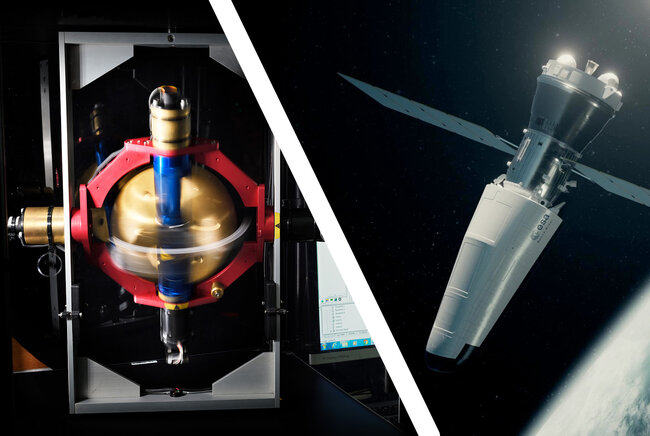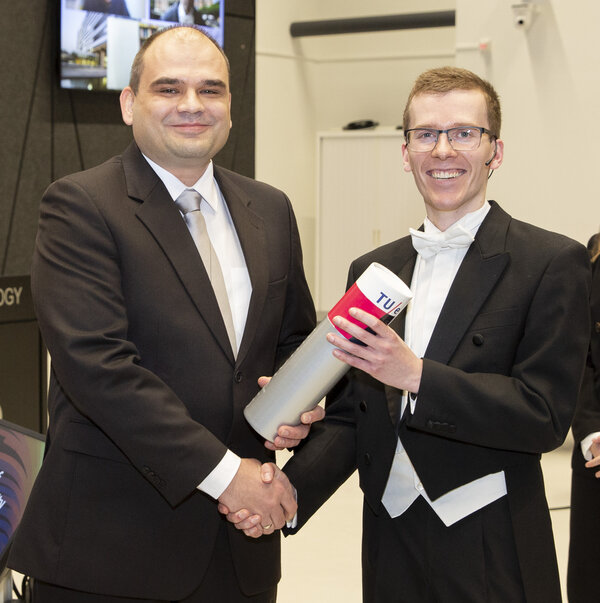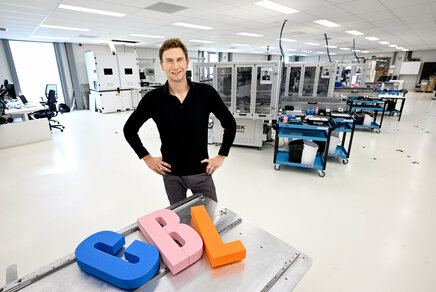Advancing control engineering methods to meet current and future challenges
Patrick Koelewijn defended his PhD thesis cum laude at the department of Electrical Engineering on February 15th.

In modern engineering systems, exceptional performance, such as improved maneuverability in aircraft and spacecraft, is highly desirable. As a result, system designs have become more complex and this leads to more intricate dynamic behaviors. A large toolset of methods are available to analyze and design control algorithms for such complex dynamic systems, but these algorithms assume that the system is linear. For his PhD thesis, Patrick Koelewijn developed a framework for systematic and computationally efficient performance analysis and control of nonlinear dynamic systems in engineering. He also graduated cum laude.
Over the last few decades, a large toolset of methods has been developed to both analyze and design control algorithms for dynamic systems, even for highly complex ones. Nonetheless, in industry, engineers rely mostly on methods that assume that the underlying system is linear and time-invariant. These frameworks are relatively easy to use and allow engineers to easily tune the performance of systems.
Moreover, it is also extensively supported by powerful software tools. However, as we push for higher performance, the behavior of the systems becomes nonlinear, and these tools are not adequate anymore.
For nonlinear dynamic systems, considerable theory for performance analysis and control design is also available. However, the corresponding methods are often too complex for use in engineering, are computationally expensive, or lack the ability to tune the performance.
To address this problem in his PhD research, Patrick Koelewijn designed a framework for systematic and computationally efficient performance analysis and control of nonlinear dynamic systems in engineering. In addition, the developed framework also allows for intuitive tuning the performance of systems.

New mathematical tools
To achieve this significant breakthrough, Koelewijn and his colleagues from the department of Electrical Engineering first developed systematic and computationally efficient mathematical analysis tools for nonlinear dynamic systems. These tools provide a general analysis of safety and performance of the operation of the system, which is irrespective of the set points the system needs to operate at or the desired reference behavior it needs to follow.
For example, in practical terms, this is useful when it comes to analyzing if a spacecraft can operate safely in an environment and satisfies the desired performance specifications along different flight paths.
Next, Koelewijn developed systematic and computationally efficient control algorithms that ensure for safety and performance concepts in nonlinear dynamic systems. Importantly, the performance tuning of the developed control algorithm is comparable to that of existing linear methods.
This makes tuning the control algorithms to achieve the desired performance for complex nonlinear systems more intuitive for the user. Moreover, the computational efficiency of the developed control tools enables fast prototyping, leading to accelerated development of new and better products.
Reducing complexity
Finally, Koelewijn and his collaborators have developed a procedure that allows for the reduction of complexity in dynamic system models. Combined with analysis and control algorithms, this allows for the handling of highly complex systems.
In conclusion, through the developed framework, Koelewijn can systematically and efficiently analyze the operation of complex systems and design controllers for them. These tools will allow engineers to push their systems to higher performance levels while guaranteeing that they operate safely and robustly.
Title of PhD-thesis: Analysis and Control of Nonlinear Systems with Stability and Performance Guarantees - A Linear Parameter-Varying Approach. Supervisors: Roland Tóth and Siep Weiland.
Media contact
Latest news


